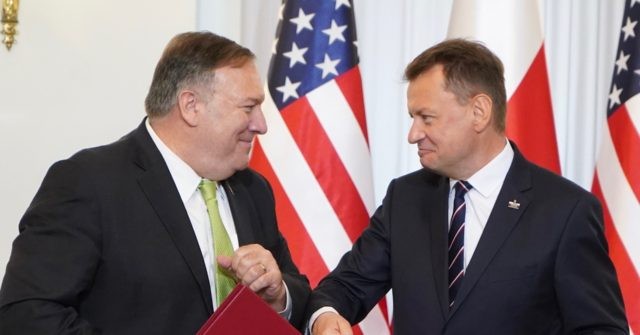Plus I doubt that we can redeploy that many troops from Germany to Poland. I'd think infrastructure would be an issue.
Possibly
@Yooper can chime in.
Moving east to Poland is logistically not much of a big deal if folks aren't immediately clamoring for the infrastructure the US had in Germany at the end of the 1980s. Basing in Poland would probably be more like Germany in the early 1960s as far as amenities are concerned. I think this would apply to both the Army and Air Force and also acceptable to both (we work with much less in Romania and Bulgaria though admittedly those are rotations rather than basings). Regardless, we aren't talking about anywhere near the numbers we had in Germany; I bet any permanent Poland basings would be of the "several brigade combat teams" quantity. A large percentage of the total number in Poland would be a forward-based, fairly robust V Corps headquarters. So while our presence in Poland might look combat-weak/HQ-heavy that HQ would be doing absolutely essential work building/coordinating a new General Defense Plan (GDP) that would have U.S. activity relying more on technologies/capabilities than on brute force numbers (that requirement would be the responsibility of the Central Europe/East Europe members).
The Navy would be much different, I suspect. But the naval presence aspect is probably more-or-less irrelevant as we probably wouldn't look to base out of Gdansk any more than we would base out of any of the Baltic states' ports. For one, we never really based naval forces out of Germany and I think the operational reasons for "not Germany" would be the same for Poland (why bottle up big-time assets in the Baltic?). Second, too close to Kaliningrad. So any naval activity would no doubt be ship calls/port visits. Like the ground forces I mentioned above the actual naval work would be the responsibility of Poland, etc.
But the bigger question is this: does moving east into Poland serve U.S. national/strategic interests? I think there are good reasons to say yes. the move does serve our national interest. As much as it would torque me that Germany would continue to get a free ride (as France has done for decades), moving east sends the message that much of Europe (and the U.S.) is not okay with Russian adventures in Georgia and Ukraine and the move east is our collective response (of course, Russia's response is that it did what it did b/c "we" (i.e., NATO) reneged on the promise not to invite Central & East Europe into membership). Anyway, there may be ways to use a move east to exert leverage on Germany to reconsider its gas/oil arrangements with Russia.
Conversely, one can make a great argument not to move east. For one, why put U.S. forces in a location where they would be in close proximity to Russian forces with a less-than-capable group of allies to our rear? And perhaps, these allies aren't less-than-capable they're actually indifferent (or even worse, hostile to U.S. interests). Further, one could make a great case that if Europe isn't interested in expending sufficient resources to be the majority stakeholder for its own defense why should we continue to subsidize this parasitism?
If I had to choose..., I would push east. I think the benefits outweigh the risks and it's a better fit with what has historically been a very reasonable Cold War U.S. foreign policy: containment. And before anyone says we are no longer in a Cold War let me acknowledge your point and agree with you; yes, it's true, we're no longer fighting the Cold War. Instead, it's worse: we're fighting "Cold War 2.0" (where the primary adversaries - Russia & China - have flipped insofar as to who is the more significant adversary).
FWIW
--- End of line (MCP)

 www.breitbart.com
www.breitbart.com


